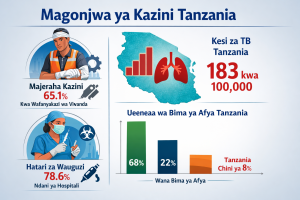
Lessons from Nairobi’s Road Safety Study: A Crucial Reflection for AfCFTA Implementation, Policy Generalization, and Potential Pitfalls.
Pandemic and Curfew: Lessons from Nairobi
Following the outbreak of the COVID-19 pandemic, governments worldwide implemented various measures to curb the virus’s spread. Curfews and other restrictions were commonly used as tools for controlling the virus. However, a recent study conducted in Nairobi, Kenya, highlights the unforeseen implications of curfews and the need for careful evaluation of pandemic measures in critical areas such as traffic safety. These lessons hold significant relevance for the African Continental Free Trade Area (AfCFTA), Africa’s historic trade initiative. With 54 nations working towards creating the world’s largest single market and enhancing intra-African trade, AfCFTA plays a pivotal role in promoting regional integration and development.
The Nairobi study specifically examined the impact of curfews on road safety during the city’s COVID-19 outbreak. As anticipated, curfews led to a reduction in collisions during restricted hours due to decreased traffic congestion. However, the study unveiled a disturbing trend—an alarming increase in crashes between pre-curfew and daylight hours.
One lesson from the study is the false sense of security experienced by some drivers. With fewer vehicles on the road, drivers felt emboldened to speed up and engage in reckless behavior, leading to a significant increase in collision risks that negated the benefits observed during curfew times. This highlights the importance of considering unintended consequences when implementing pandemic measures. Another crucial lesson is that curfews are not universally applicable solutions. Policymakers must recognize the potential unintended consequences of implementing blanket curfews without a comprehensive understanding of their impact on traffic safety. Balancing public health concerns with road safety is paramount, particularly considering the high toll of 1.3 million annual deaths in traffic accidents, with low- and middle-income countries disproportionately affected.
Addressing the problem in the future
To address any pandemic effectively, policymakers should adopt a holistic approach that incorporates diverse strategies tailored to each country’s specific environment. Relying solely on curfews is insufficient. Policymakers should consider comprehensive measures that take into account infrastructure limitations and unique requirements, rather than blindly applying universal approaches. For instance, curfews and lockdowns may not be practical in countries with substantial homeless populations and many people living in extreme poverty, which the AfCFTA aims to uplift.
For poorer nations with poor infrastructure, vaccination must be prioritized. The spread of the virus can be effectively stopped by widespread vaccination campaigns, which also avoid the unwanted effects of other restrictive measures. There are crucial factors to take into account for the African Continental Free Trade Area (AfCFTA) after learning from the Nairobi road safety study. First off, a contextualized approach is required in light of the fact that different African countries and regions can experience quite diverse pandemic response impacts. Evidence-based policies and initiatives that take into account the particular setting, infrastructure, and socioeconomic concerns of each nation should be devised.
It is essential to take a multifaceted strategy, and member states are urged to establish comprehensive crisis management plans. Instead of relying on one-size-fits-all solutions, policymakers should evaluate a diversity of tactics, taking into account the interdependence of many sectors and the potential unintended consequences of particular initiatives.
It is important to promote the use of thorough research, data analysis, and evaluations in decision-making. The possible impacts of various policies on trade and economic activity should be studied by governments.
The member states’ cooperation and knowledge exchange are essential. AfCFTA can serve as a venue for cooperation, allowing for debates on effective pandemic response strategies as well as the sharing of knowledge and best practices. It is possible to make wise decisions, prevent errors, and boost disaster preparedness.
The importance of integrating economic and public health concerns cannot be overstated. When formulating pandemic response policies and plans, taking into account the possible impacts on trade, investment, and economic growth, it should be a priority to strike a balance between economic priorities and public health concerns.
The keys are long-term adaptability and resilience. A more resilient and sustainable trading ecosystem can be achieved by making investments in robust healthcare systems, infrastructure upgrades, digitalization, e-commerce, and enlarged regional value chains.
The member countries of the AfCFTA may successfully manage crises, increase regional integration, and encourage sustainable development by adopting these lessons. Within the framework of the AfCFTA, policy discussions and the implementation of measures that priorities both public health and economic growth should be influenced by the conclusions from the Nairobi road safety research.
These are the writer’s own opinions and do not necessarily reflect the viewpoints of Liberty Sparks. Do you want to publish in this space? Contact our editors at [email protected] for further clarification.



